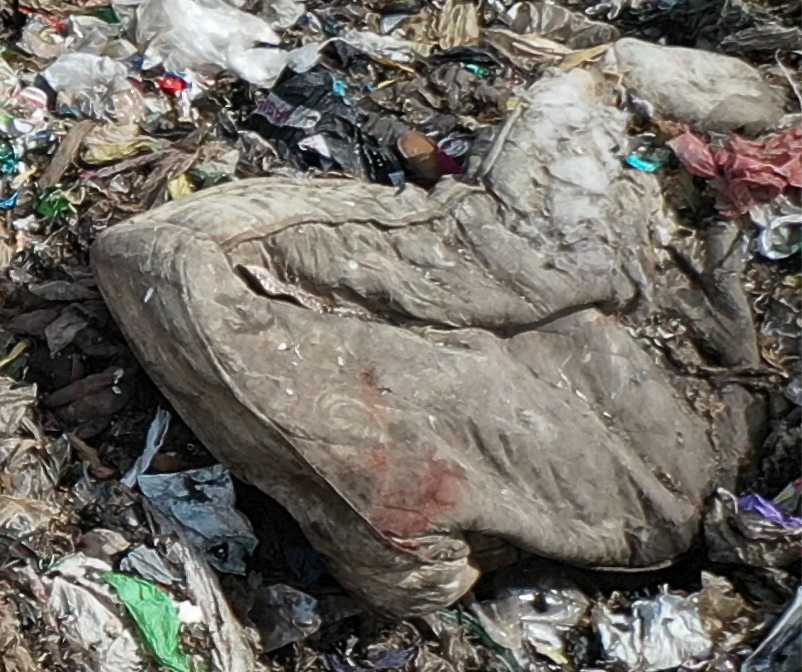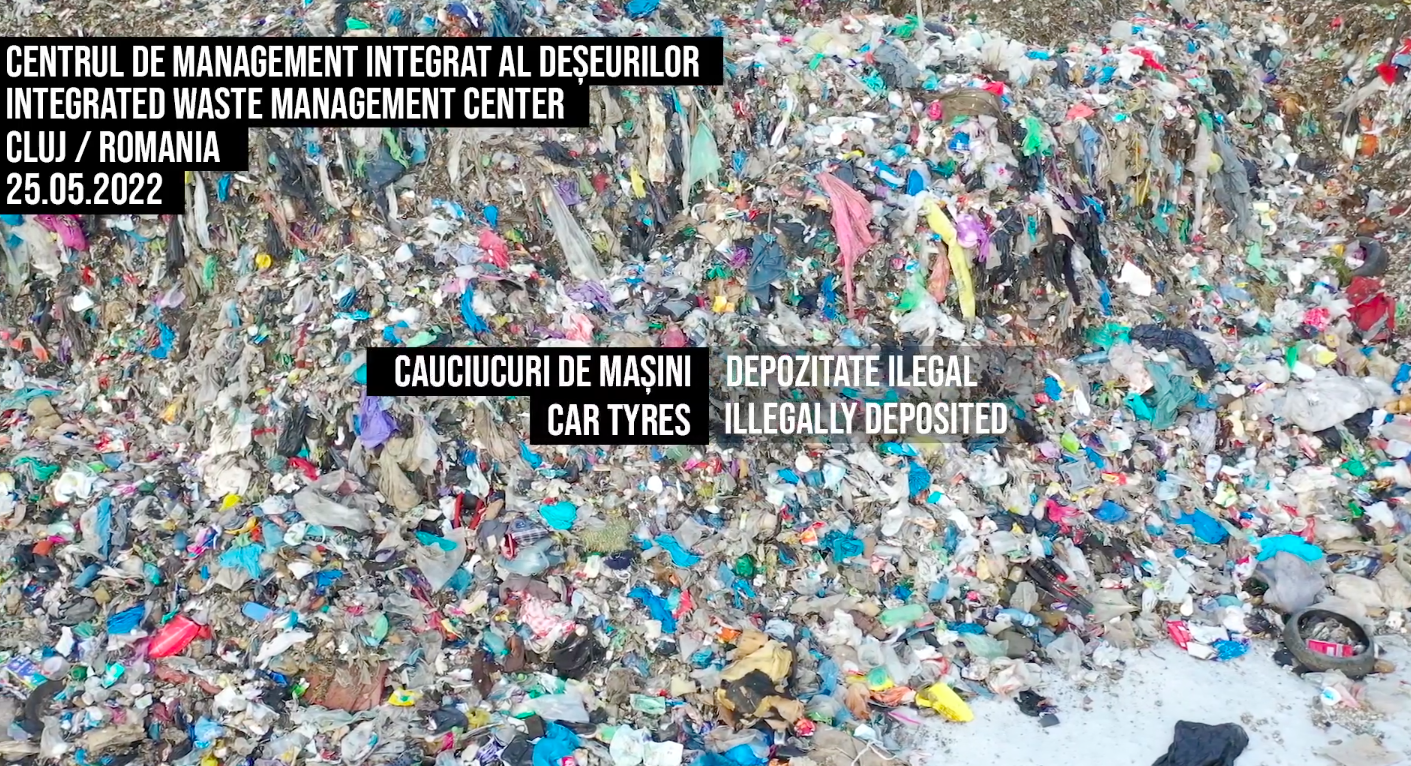
“I sat with closed windows at 33 degrees and baked. If I opened the window, the house smelled like the end of the world,” Katelin says of how he felt on Tuesday in Cluj-Napoca.
He lives in Meresht, a district in the northeast of the city, and says that the unpleasant smell is not unusual for him. Garbage is not taken out every day, so at first it was thought that the problem was here.
And he was not the only one who noticed a strange smell. Diana lives about six kilometers from where Katalin lives, but she says she felt something unusual in the air from the morning she left for work.
“Then, around 2:00 p.m., when I went out to get a cigarette, I smelled death. You couldn’t breathe, you felt sick,” the woman continued. “I stayed inside, but by about 3 p.m. I had the impression that he was also in the building.”
Diana says that the smell has become familiar, because it is not the first time that the city’s residents have encountered it. Previously, everything was written off to the landfill in Pata Rât, it was clear where it came from. Now the young woman believes the smell is still coming from the landfill.
The problem, which seems easy to the residents of the city, becomes complicated when it ends up in the court of the authorities. Responsibility is transferred from one institution to another. In all this ping-pong, the citizens have still not received a clear answer to the simple question: “Where does the smell of Cluj come from?”.
“Mayor’s Office and RADP bear no responsibility”
Already on Tuesday, August 29, the mayor of the city, Emil Bock, presented the problem at a meeting of the local council. He began by saying that he does not shy away from talking about the main topic of the day that concerns the people of Cluj, namely: the origin of the smell in the city.
“My first fear and first concern was to see what was happening at the Pata Rât warehouse, at the old ramp, which is closed. We’ve had problems with recycling before and we thought maybe they’ve started working and there’s a problem with the ramp at Pata Rât. There is no problem there, no movement has been made, it is intact. Therefore, the City Hall and RADP directly have no reason for the smell to appear,” the mayor explained.
The unconformable deposit at Pata Rât has been closed and greened, at least declaratively, since 2020. In its place, the Center for Integrated Waste Management (CMID) was built, managed by the sanitary company Supercom, a component of the Cluj County Integrated Waste Management System (SMID).
“Through the project “Integrated waste management system in Cluj County”, the County Council proposes to implement an integrated waste management system in Cluj County in accordance with EU standards,” the purpose of the SMID project is described in the preamble.
Some activists who have been fighting the garbage problem in Cluj for years believe that things are a bit more complicated than the mayor would say.
The smell comes from CMID

August 2021. Publicly presented evidence of environmental activists that waste is not sorted at the Cluj landfill. PHOTO: Clujul Civic Group on Facebook
Istvan Sakats, an activist who has spent a decade trying to put pressure on Cluj’s authorities to solve the waste problem, says the RADP and the city hall are also partly to blame.
“In fact, from 2020 to 2023, the RADP itself transported tens of thousands, perhaps even more than 100,000 tons of waste. Because before Supercom took over CMID, the ramp was run by RADP. So at least 80% of the smelly material is put there by RADP,” the activist continues.
Sakats is sure the smell is coming from CMID. Such problems do not arise for the first time.
“In 2020, when Cluj RADP started illegally transporting tens of thousands of tons of unsorted, untreated, uncomposted waste from its temporary ramp to CMID, then there was another wave of stench,” the activist explains. “After three days, the mayor had to stop the operation.”
Problems with the storage and collection of garbage in Cluj-Napoca did not arise immediately. István Sakats periodically goes to the warehouse area for filming with a drone and removes tires, mattresses or bags of crushed stone. All these are inappropriate materials, which, according to the law, have no use here.
“I shoot objects, as a rule, more than 2-3 meters, on the condition that, according to the law, objects smaller than 8 cm should reach there. Because this is the size of the final cut,” the activist explains.
He repeatedly reported to the Environmental Guard of Cluj. Some are not answered, and for those where he is lucky and gets something back, he is only explained that the workers went to the field and found what he showed them on the video.
“Well, I’m not saying my shots are deep fakes,” Sakats continues.
Environmental protection knows that there is a problem with CMID, but there are still no sanctions. Lucian Stancu, commissioner of the Environmental Guard of Cluj, confirmed to HotNews that the agency received reports from Istvan Sakat. Thus, several fines were issued for non-compliance with the rules of the selective collection.
The Environmental Protection Agency should, in theory, do these checks without reports from people. “Anyway, it’s part of our annual plan to at least one check. But it can be supplemented, as was the case this year, whenever we deem it necessary,” explains Stanku.
The Commissioner confirms the violations reported by Istvan Sakats and that there are still problems with the sample collection in CMID. Regarding yesterday’s episode and the inexplicable smell, Stanku says that “the collected household waste was not processed and led to yesterday’s discomfort.”
The problem is in the new landfill. “They were collected from the city and the county, but they were not processed, because they did not cope, they had some kind of malfunction,” the commissioner continues. The smell came from about 2,000 tons of untreated waste.
Commissioners of the environmental watch yesterday conducted a control, which was completed without sanctions. Instead, some corrective measures were taken.
“It is necessary to take all measures to avoid and reduce this discomfort and smell. They also had some measures from the Directorate of Public Health (DSP) related to reducing discomfort,” explains Lucian Stancu.
At the moment there are no sanctions because, says the commissioner, it will not be a solution.
“Corrective measures solve the problem. Sanctions are a continuation, but what happened yesterday cannot be solved with the sanctions we applied yesterday,” Stanku continues.
The solution to all problems would be a selective collection, says the commissioner:
“If there was a selective collection from the population, the sanitary service would collect selected waste, it would end up in the warehouse in a higher percentage of recycling than household waste, then we probably wouldn’t have problems.”
An unpleasant smell, a normal phenomenon for the inhabitants of Cluj

May 2022. Eco-activists provided evidence that waste is not sorted at the landfill. PHOTO: Clujul Civic Group on Facebook
Diana and Katelyn said it was not the first time they had smelled something like this. István Sakats told us the same thing. A Facebook group called Clujul Civic has posts from other years where people complain about the same thing. One of the posts was made by the activist himself in 2020, which begins: “Cluj stinks.”
“Over the past few days, RADP has been transporting thousands of tons of sorted ‘umpic’ waste to the Integrated Waste Management Center to hide thousands more tons of completely unsorted waste,” continued Sakats.
The problem of waste management in Cluj-Napoca is deep-rooted, and the smell is just the latest signal of existing irregularities. A documentary made by Deutsche Welle (DW) journalists tells about how European funds are spent on waste management in the capital of Transylvania.
Spent European funds?
CMID, the new waste center in Cluj, was built after 12 years of pressure from the European Union. The landfill in Pata Rat, which posed a danger to the public, needed to be replaced.
“Between 2014 and 2020, the EU allocated 318.2 million euros to Romania for waste management. 40 million in Cluj alone,” DW journalists testify.
A €70 million investment in CMID, partly from the EU, has forced DW journalists to go down the dirt road. This is how they found out that in Cluj they do not collect selectively.
“The garbage truck says it only collects paper today. But apart from that, he collects everything else,” the documentary says. Faced with this reality, citizens wonder whether it still makes sense to collect selectively.
Diana says that until this year, the garbage truck piled up garbage. Since the company changed, two more containers appeared in front of her block. One for household waste and one for paper. He admits that lately he has not followed up on whether the garbage is taken out separately, but at home they still started collecting it selectively.
Romania appeared twice before the European Court in cases of waste storage. However, court decisions do not seem to be enforced.
DW journalists also contacted the Cluj County Council, but were told that it was not within their mandate to monitor what was happening in the CMID. The European Commission also answered them that “project management is done by the member states.” Therefore, they, in turn, shifted the responsibility.
At the same time, citizens suffer. Istvan Sakat says the consequences are varied:
Groundwater was destroyed after RADP worked on a temporary ramp that opened in 2015 and was in place until recently.
“In addition to this, there is a study by the County Council in 2011 which shows that the entire hill in the RADP temporary ramp area is irreversibly contaminated with heavy metals. In this case, the concentration of selenium sometimes exceeds the intervention limit by 1000 times.
There are three levels: tolerable limit, alarm limit and intervention limit. The intervention limit is the most serious and there will be an immediate need for an intervention to clean up. The district council has known for 12 years that there are values that exceed the intervention limits by 1000 times, and they have not lifted a finger,” the activist continues.
Sakats believes that the decision is in the hands of the people.
“Only in this way the board from Cluj, fearing greater political damage, could lift a finger,” concludes Sakats.
Source: Hot News
Ashley Bailey is a talented author and journalist known for her writing on trending topics. Currently working at 247 news reel, she brings readers fresh perspectives on current issues. With her well-researched and thought-provoking articles, she captures the zeitgeist and stays ahead of the latest trends. Ashley’s writing is a must-read for anyone interested in staying up-to-date with the latest developments.